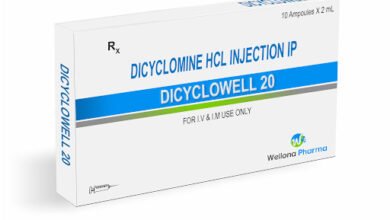How to Get Rid of Chest Congestion Fast? – Credihealth

The signs and symptoms indicating chest congestion are quite annoying and unpleasant. They include coughing, feeling uneasy due to phlegm, frequently clearing your throat, and more. A respiratory problem that results in such symptoms and a congested chest is surprisingly common. Millions of the general population are affected by variations of this infection.
Unfortunately, many people refuse to take the problem of congestion and mucus accumulation seriously despite medical professionals and institutions repeatedly issuing warnings against the same. Respiratory problems that include mucus accumulation and congestion generally affect the mucus lining of your respiratory system. This results in inflammation, which in turn causes mucus production.
The body expelling mucus is a good sign. Mucus is known to be expelled in the form of phlegm. The expulsion of mucus indicates that your body is defending itself by expelling all hazardous substances, bacteria, and irritants in the form of phlegm.
Also Read: 15 Ways to Get Rid of Phlegm
Remedies to Immediate Chest Congestion Relief-
Over the years, humanity has suffered and survived these infections and respiratory problems, and in their wake, they also discovered an array of natural remedies that can help you decongest your chest.
#1 Apple Cider Vinegar
Apple cider vinegar has become a household name when it comes to natural remedies for several health conditions, including chest congestion. Although there is very limited scientific research to explain the potential benefits of apple cider vinegar, it is believed to have certain antimicrobial and anti-inflammatory properties that aid in managing respiratory conditions. It is also known to possess properties that help break down mucus and stimulate the expelling of phlegm.
Using apple cider vinegar is fairly simple. You need to dilute 1 tablespoon of this vinegar in 1 cup of warm water and use it for gargling. You must repeat this twice a day for better results.
#2 Essential Oils
Not all essential oils are beneficial and relevant to chest congestion. The few relevant oils include eucalyptus oil and tea tree oil. While they are not magical remedies that will make you better in a minute, they possess properties that might be useful when dealing with alleviating phlegm and providing some temporary relief.
Using these oils is relatively simple. Eucalyptus oil is known to be comprised of a compound called eucalyptol, which is known to have shown some decongestant properties. It can break down mucus and open up your airways, in turn making it easier to breathe.
You can use these oils in a couple of ways. You can add a few drops of the oil to hot water and inhale the steam. It is similar to aromatherapy. You can also cover your head with a towel to trap the steam with a tent-like effect.
Another way to use the oils is to mix it with another carrier oil and use it for a chest or a chest and throat rub. A gentle massage with the topical application provides you with a soothing effect, whereas, simultaneously, inhaling the aroma can also provide an additional positive impact.
It is recommended that you continue with your chosen form of remedy every day before you go to sleep.
Also Read: Essential Oil Sets and Their Benefits
#3 Fenugreek Tea
Fenugreek tea is a popular herbal remedy that has been used in traditional medicine for an array of health conditions and illnesses. Fenugreek is known to comprise of properties that particularly aid in alleviating symptoms of congestion. One of these properties is its anti-inflammatory property, which helps reduce inflammation in your airways and provides some relief from congestion.
It is easy to prepare fenugreek tea. You should begin by steeping 1 teaspoon of fenugreek seeds in a cup of hot water. This step takes up to 10 to 15 minutes. Then, strain the seeds and prepare the tea using the water. Be sure to consume the tea while it’s warm.
#4 Honey
Honey is a very popular household natural remedy, which has proved to be effective in soothing coughs and relieving chest congestion. It is one of the remedies used for centuries due to its potential in managing respiratory diseases and infections.
Honey has antimicrobial and cough suppression properties, which aid in the fight against respiratory infections and reduce coughs, whether it be a dry cough or a cough that expels phlegm.
Honey can be incorporated into your remedy in some simple ways, such as adding 1 or 2 teaspoons of honey to a cup of warm water or any herbal tea (such as chamomile tea or peppermint tea). It is important to note that honey should not be given to infants younger than one year old, as it raises the risk of infant botulism.
#5 Heating Pad
A heating pad for your chest congestion will only provide some temporary relief, and it is important to note that it is not a remedy or a permanent solution. Additionally, the heat from the heating pad can break down your mucus and help expel phlegm.
Using a heating pad is fairly simple. You can use an electric heat pad which is easy to operate. You simply have to plug it in, and it will use the electricity to warm up. You can also use a microwaveable gel pack or heating pad. You must not heat it up more than required, and always test it on your palm or arm to avoid burns.
#6 Ginger
Ginger is a popular natural remedy that has been used since ancient times to alleviate an array of respiratory infections, including chest congestion. Ginger is known to comprise anti-inflammatory, antiviral, and expectorant properties. These properties significantly reduce inflammation, fight off infections, and loosen mucus in your respiratory tract.
Incorporating ginger in your remedy is fairly simple and can be done in various ways. You can consume “ginger tea” by adding grated ginger (fresh) to a cup of hot water and using it to brew your tea. Straining the ginger is optional. You can add 1 teaspoon of honey to this tea to the remedy. Another way to include ginger is by inhaling the vapor that is produced when you add a few slices of fresh ginger to a boiling pot of water. You can also use a towel to form a tent so no vapor escapes.
Also Read: 14 Proven Health Benefits of Ginger shots
#7 Onion Remedy
Onion is a rather unexpected addition to the list of natural remedies. It has potential benefits when it comes to resolving respiratory symptoms, including the problem of chest congestion. Onion is known to comprise antimicrobial, anti-inflammatory, and other beneficial properties.
Using an onion as a remedy is relatively easy. You can prepare Onion Poltuce by chopping fresh onion into a clean cloth and then enclosing the cloth to make your poltuce. You can apply this to your chest and bandage it. It is advised to leave it on for 15 to 20 minutes and then take a warm bath afterward. You can also boil a few sliced or chopped pieces of onion in a pot of water. It is extremely beneficial to inhale the steam.
It is important to note that you might be sensitive to the onion, which may cause skin irritation when applied topically. It is best to test a small skin area and check for sensitivity.
#8 Turmeric
The medicinal properties of turmeric have been profitable for centuries in traditional medicine. It has also been proven beneficial for chest congestion infections and diseases. Turmeric is known to comprise curcumin, which has extensive anti-inflammatory, antioxidant, and antimicrobial properties.
Turmeric can be used in a few ways to incorporate it as medicine. One of the things to do is consume turmeric milk. You need 1 teaspoon of turmeric powder mixed in a cup of warm milk. If you want to, add a teaspoon of honey or a sweetener. Turmeric tea is another concoction that can help. You need to add 1 teaspoon of turmeric powder to a cup of hot water, and after letting it steep for at least 10 minutes, you can strain the water and use it to brew your usual tea. You can also directly include turmeric in your meals.
Also Read: Difference Between Curcumin and Turmeric
Conclusion-
Chest congestion can make us feel pretty yucky. It happens when our chest gets filled with icky stuff like mucus and phlegm. But there are some natural ways to help us feel better. From the soothing properties of honey and the decongestant effects of essential oils to the anti-inflammatory benefits of ginger and turmeric, these remedies offer a variety of options for tackling chest congestion.In the meantime, staying hydrated, getting plenty of rest, and maintaining good overall health can also contribute to a faster recovery from chest congestion. So, try these natural remedies, take care of yourself, and breathe easier soon.If your congestion persists or worsens, or if you have other concerning symptoms, it’s crucial to consult with a healthcare professional for a proper diagnosis and treatment plan.
Source link
#Rid #Chest #Congestion #Fast #Credihealth



